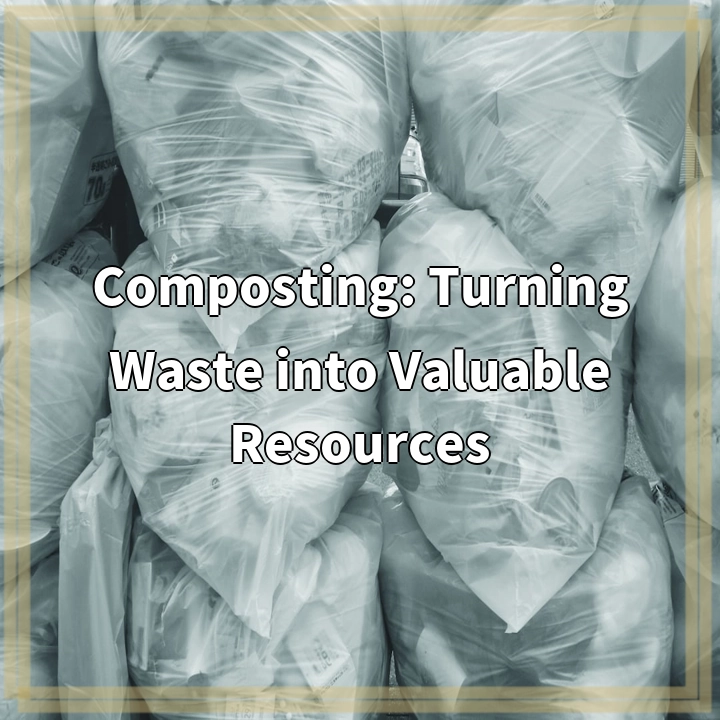
What it is:
Composting is the natural process of recycling organic matter, such as food scraps and yard waste, into a rich soil amendment known as compost. This method not only diverts waste from landfills but also enriches soil, helping to improve its structure, fertility, and overall health. Composting relies on microorganisms, such as bacteria and fungi, as well as larger organisms like earthworms, to break down matter over time. This biological process transforms decomposing materials into nutrient-rich compost that plants can readily absorb.
Real-world Problems
Despite its numerous benefits, composting faces significant challenges that can inhibit its widespread adoption and effectiveness. Below are some of the primary real-world problems associated with composting:
Lack of Awareness and Education
Many people are unaware of the benefits of composting or how to do it effectively. This lack of knowledge can lead to misconceptions about composting, resulting in individuals being hesitant to participate. Educational initiatives are crucial to teach community members about the simplicity and advantages of composting.
Contamination of Materials
Composting requires the right mix of organic materials to succeed. When non-organic waste—such as plastics, metals, or treated wood—ends up in compost bins, it can cause contamination. This contamination not only hinders the composting process but can also result in the production of hazardous substances, rendering the final product unusable.
Accessibility of Composting Facilities
In many urban areas, access to communal composting facilities is limited. While some cities have implemented programs to support composting, others lack infrastructure or resources to make it feasible for residents. This accessibility issue can deter individuals from composting at home, especially in apartment buildings or regions with limited outdoor space.
Maintenance and Management
Successful composting requires proper maintenance, including monitoring temperature, moisture levels, and aeration. For many individuals, the time and effort needed to manage a compost pile can be a barrier. Without ongoing commitment, composting can become ineffective, leading to odors or attracting pests.
Regulatory and Policy Barriers
In some regions, local regulations may inhibit composting initiatives, particularly for large-scale operations. Policies governing waste management often do not account for or support composting as a viable solution, leading to a disjointed approach to organic waste management that overlooks the importance of composting.
By addressing these challenges and raising awareness, composting can be better integrated into waste management practices, contributing to sustainable living and resource conservation.

Solutions to Composting Challenges
To effectively promote composting and overcome the challenges associated with it, a variety of solutions can be implemented at community and policy levels. Here are some key strategies:
Enhanced Education and Outreach Programs
Educational initiatives are essential to raise awareness about the benefits of composting and how to do it correctly. Communities can organize workshops, webinars, and informational campaigns to teach residents about composting techniques, materials, and the importance of reducing waste.
Clear Guidelines on Compostable Materials
Providing clear guidelines on what materials can and cannot be composted is vital to prevent contamination. Local governments and organizations can develop easy-to-understand resources, including posters and flyers, that outline acceptable composting materials to be displayed in neighborhoods, schools, and community centers.
Improving Accessibility to Composting Facilities
To encourage more individuals to compost, it is crucial to improve access to communal composting facilities, especially in urban areas. Local governments can invest in building more composting locations, offering curbside pickup for organic waste, or creating community composting programs that are easily accessible to residents.
Providing Support for Home Composting
Communities can offer resources and support to individuals interested in starting their own compost systems at home. Providing compost bins at a reduced cost, offering starter kits with essential tools, and hosting “how-to” sessions can empower more people to take part in composting.
Advocating for Supportive Policies
Advocacy for policies that support composting initiatives is essential to foster a more sustainable waste management system. Engaging with policymakers to enact regulations that promote composting for both individuals and businesses can lead to broader adoption and implementation of composting practices.
Monitoring and Maintenance Support
Providing ongoing support for those who compost—such as regular check-ins, tips for maintaining healthy compost piles, and troubleshooting common issues—can help ensure success. Community composting groups or local gardening clubs can serve as resources for those new to composting.
By implementing these solutions, communities can work towards enhancing the effectiveness of composting, fostering a culture of sustainability, and ultimately contributing to a healthier environment.















